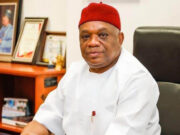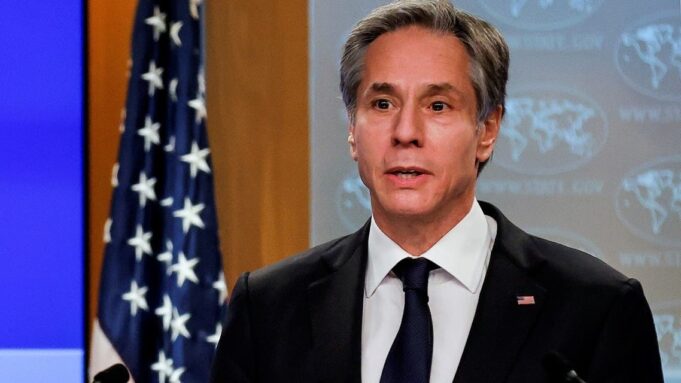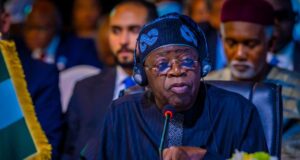As US Secretary of State Antony Blinken visited South Korea on Monday, North Korea fired a ballistic missile that fell into the sea, serving as a stark reminder of the ongoing security challenges in the region.
The missile, which flew approximately 1,100 kilometers (680 miles), was launched as Blinken was engaged in talks with South Korean officials in Seoul.
Blinken condemned the missile test during a joint news conference with his South Korean counterpart, Cho Tae-yul, emphasizing the importance of continued cooperation between the US, South Korea, and Japan in the face of North Korea’s provocative actions.
“Today’s launch is just a reminder to all of us of how important our collaborative work is,” Blinken stated, underscoring the need for enhanced three-way exercises and intelligence-sharing.
In addition to the missile launch, Blinken raised alarm about the growing relationship between North Korea and Russia.
He revealed that Russia is supplying North Korea with military equipment and training, and there are concerns that Moscow plans to share advanced space and satellite technology with Pyongyang.
Blinken also expressed concern that Russia, a member of the UN Security Council, could formally accept North Korea as a nuclear state, further undermining international efforts to curb Pyongyang’s nuclear program.
The missile test coincided with Blinken’s visit to South Korea, which also marked the anniversary of the January 6 Capitol riots.
While in Seoul, Blinken avoided commenting directly on South Korea’s domestic political turmoil, including the impeachment of President Yoon Suk Yeol, instead focusing on South Korea’s “democratic resilience.”
As Blinken continued his tour, he assured South Korean officials that the US remains committed to its alliance with South Korea and the region’s security, despite ongoing tensions with North Korea and the political instability in South Korea.
Meanwhile, Blinken’s next stop was Tokyo, where he discussed the evolving security situation with Japanese officials, emphasizing the need for a united front against North Korea’s growing missile and nuclear threats.

















